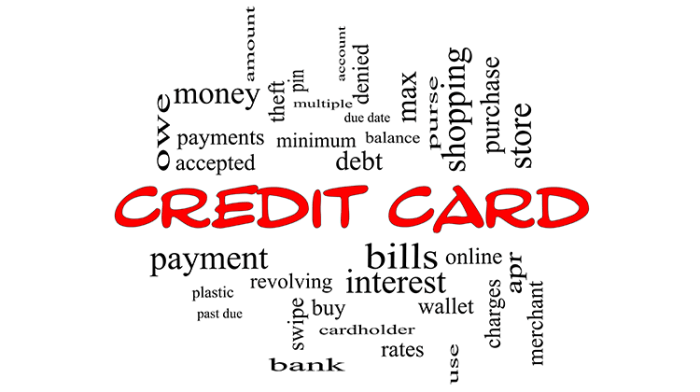Effective Methods for Budgeting and Saving Money Consistently
Effective methods for budgeting and saving money consistently are crucial for achieving financial well-being. This guide explores practical strategies for understanding spending habits, creating realistic budgets, implementing consistent saving plans, managing debt effectively, and planning for long-term financial security. We’ll delve into various budgeting techniques, saving methods, and debt management strategies, providing actionable steps to improve your financial health.
From tracking expenses and identifying unnecessary spending to setting financial goals and exploring investment options, we aim to equip you with the knowledge and tools to take control of your finances. We will also discuss the importance of seeking professional advice when needed and navigating the complexities of long-term financial planning, ensuring a comprehensive approach to building a secure financial future.
Creating a Realistic Budget: Effective Methods For Budgeting And Saving Money Consistently
Creating a realistic budget is crucial for achieving your financial goals. It involves honestly assessing your income and expenses, categorizing them effectively, and making informed decisions about your spending habits. A well-structured budget provides a clear picture of your financial health, enabling you to identify areas for improvement and make necessary adjustments.A realistic budget accurately reflects your current financial situation, allowing you to plan for the future effectively.
It’s a dynamic tool, not a static document, requiring regular review and adjustments to accommodate life’s changes. The process itself encourages mindful spending and promotes financial discipline.
Sample Budget Template
A simple budget template can significantly aid in tracking income and expenses. The following example divides expenses into “Needs” and “Wants,” providing a clear visual representation of spending patterns. Remember to tailor categories to your specific circumstances.
| Category | Needs | Wants |
|---|---|---|
| Housing | Rent/Mortgage Payment | Home Improvement |
| Transportation | Car Payment/Public Transportation | Gas/Maintenance |
| Food | Groceries | Eating Out |
| Utilities | Electricity, Water, Gas | Cable/Streaming Services |
| Healthcare | Insurance Premiums | Gym Membership |
| Debt Payments | Loan Payments | |
| Savings | Emergency Fund | |
| Other Expenses | Clothing (essentials) | Clothing (non-essentials), Entertainment |
| Income | Salary/Wages |
Comparison of Budgeting Methods
The 50/30/20 budget rule is a popular method that allocates 50% of after-tax income to needs, 30% to wants, and 20% to savings and debt repayment. Other methods include the zero-based budget, which allocates every dollar to a specific category, ensuring all income is accounted for, and the envelope system, a cash-based method where money is allocated to different envelopes for specific expenses.
Each method has its advantages and disadvantages, and the best choice depends on individual preferences and financial situations. The 50/30/20 rule provides a simple framework, while zero-based budgeting offers greater control, and the envelope system enhances mindful spending through physical cash management.
The Importance of Setting Financial Goals, Effective methods for budgeting and saving money consistently
Setting both short-term and long-term financial goals is essential for effective budgeting. Short-term goals, such as saving for a vacation or paying off a credit card, provide immediate motivation and achievable milestones. Long-term goals, like buying a house or retiring comfortably, provide a broader financial vision and encourage consistent saving and investing. For example, a short-term goal could be saving $1000 for a down payment on a used car within six months, while a long-term goal might be saving $50,000 for a down payment on a house within five years.
Adjusting Your Budget for Unexpected Events
Life throws curveballs. Unexpected expenses, like car repairs or medical bills, and income changes, such as job loss or a pay cut, require budget adjustments. Having an emergency fund is crucial for handling unexpected expenses without derailing your financial plan. For income changes, reassess your spending habits and prioritize needs over wants. Consider cutting back on non-essential expenses or exploring additional income sources.
For example, if you experience a sudden job loss, immediately reduce discretionary spending and explore options like temporary employment or freelance work. Regularly reviewing and adjusting your budget is key to its effectiveness.
Mastering effective budgeting and saving requires consistent effort and a proactive approach. By understanding your spending habits, creating a realistic budget, implementing saving strategies, and managing debt effectively, you can build a strong financial foundation. Remember that long-term financial planning, including emergency funds and investments, is essential for securing your future. While this guide provides valuable tools and techniques, seeking professional financial advice can further enhance your journey towards financial success.
Take control of your finances today and start building a brighter tomorrow.
FAQ Insights
What is the best budgeting app?
The “best” budgeting app depends on individual needs and preferences. Popular options include Mint, YNAB (You Need A Budget), and Personal Capital, each offering different features and functionalities. Consider trying a few free versions to find the one that suits you best.
How much should I save each month?
The ideal savings rate varies depending on individual circumstances, goals, and income. A common guideline is to save at least 20% of your income, but aiming for a higher percentage is always beneficial. Prioritize building an emergency fund before focusing on other savings goals.
What are some common mistakes people make when budgeting?
Common mistakes include underestimating expenses, not tracking spending accurately, failing to adjust the budget for unexpected events, and neglecting to set realistic financial goals. Lack of consistent monitoring and review are also frequent pitfalls.
When should I consult a financial advisor?
Seeking professional financial advice is beneficial when facing complex financial situations such as significant debt, planning for retirement, investing in complex instruments, or navigating significant life changes like marriage or inheritance.


